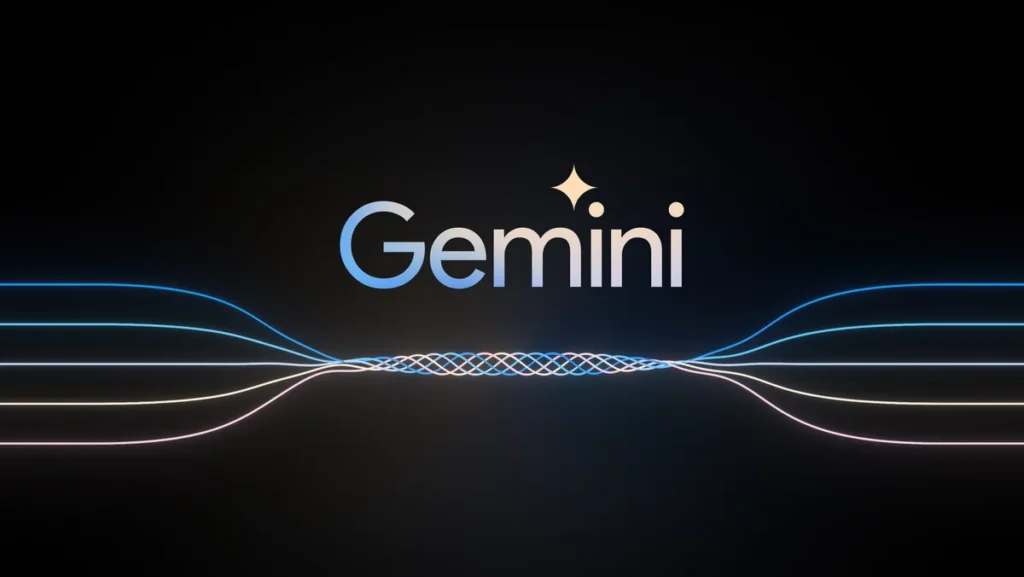
On Wednesday 6th December 2023, Google launched its latest endeavour aimed at asserting its presence in the rapidly expanding realm of generative artificial intelligence. The new AI model, called Gemini, stands as a robust contender against prominent models like OpenAI’s GPT series, intending to elevate various aspects spanning from Google’s consumer applications to the capabilities of Android smartphones.
Google’s bold aspirations were notably evident in the company’s announcement, where Gemini was heralded as their “largest and most capable AI model” to mark the onset of a “Gemini era.”In this visionary stage, Google’s model is expected to be integrated across diverse settings, ranging from corporate environments to consumer gadgets such as the Google Pixel 8 Pro.
In a departure from existing AI models that usually cater to specific user prompts—such as images or text exclusively—Gemini was meticulously crafted as a “multimodal” model by Google. This uniqueness enables it to accept inputs encompassing diverse media types, amalgamating text, images, audio, video, and programming code seamlessly.
Sundar Pichai, Google’s CEO, articulated, “This new era of models represents one of the biggest science and engineering efforts we’ve undertaken as a company,” underscoring the significance of Gemini’s development in a blog post.

Google revealed that its proprietary AI chatbot, Bard, has already been upgraded with a version of the Gemini model. Additionally, the tech giant plans to incorporate Gemini into widely utilized products, including Google’s search engine and the Chrome web browser, serving billions of users globally.
This announcement signifies an endeavour to regain momentum following the unexpected surge in popularity of OpenAI’s ChatGPT a year ago, which triggered a rush within the industry to expedite generative AI tools. It also prompted a global dialogue on the risks and advantages of AI.
Furthermore, Google’s objective with this launch extends to permeating generative AI throughout its expansive ecosystem. The Gemini 1.0 release comes in three different sizes: Nano, tailored for mobile devices and app developers; Pro, the default model catering to diverse tasks and clientele; and Ultra, characterized as Google’s most sophisticated AI model yet, undergoing rigorous safety testing.
The launch also spotlighted Google’s strides in cloud computing, a pivotal asset for AI developers. The company disclosed using a new generation of potent cloud-based processors to train Gemini, significantly enhancing training speeds. This advancement, poised to be accessible to Google’s cloud customers, holds the potential to augment AI training accessibility while fortifying Google’s position in the public cloud services market.
Despite the advancements, concerns persist regarding the potential for AI models, including Gemini, to generate misleading results. Eli Collins, VP of Product at Google DeepMind, acknowledged these risks and highlighted ongoing efforts to improve factuality in Gemini. He also emphasized the need for additional techniques to enhance response accuracy when integrating these models into products like Bard.
In acknowledgement of these risks, Google announced a gradual release plan for Gemini Ultra, subjecting it to third-party safety evaluations and red-teaming before its broader rollout to developers and enterprise customers early next year—a commitment made in conjunction with the Biden administration earlier in the year.
Google Gemini Ai Login Password & Sign up
For web browser login:
- Visit https://exchange.gemini.com/signin.
- Enter your registered email address and password to gain access.
If you’ve forgotten your password:
- Click on the “Reset your password” link provided on the page.
- Follow the prompts to reset your password securely.
For mobile app login:
- Open the Gemini mobile app.
- Tap the “Account” icon located in the upper right corner.
- Select the “Sign In” option.
- Enter your email address and password in the prompted screen to access your Gemini account.
Note: If you’ve set up additional security measures like FaceID, fingerprint authentication/TouchID, or a PIN for the Gemini app, you’ll be prompted to authenticate using your chosen method.
